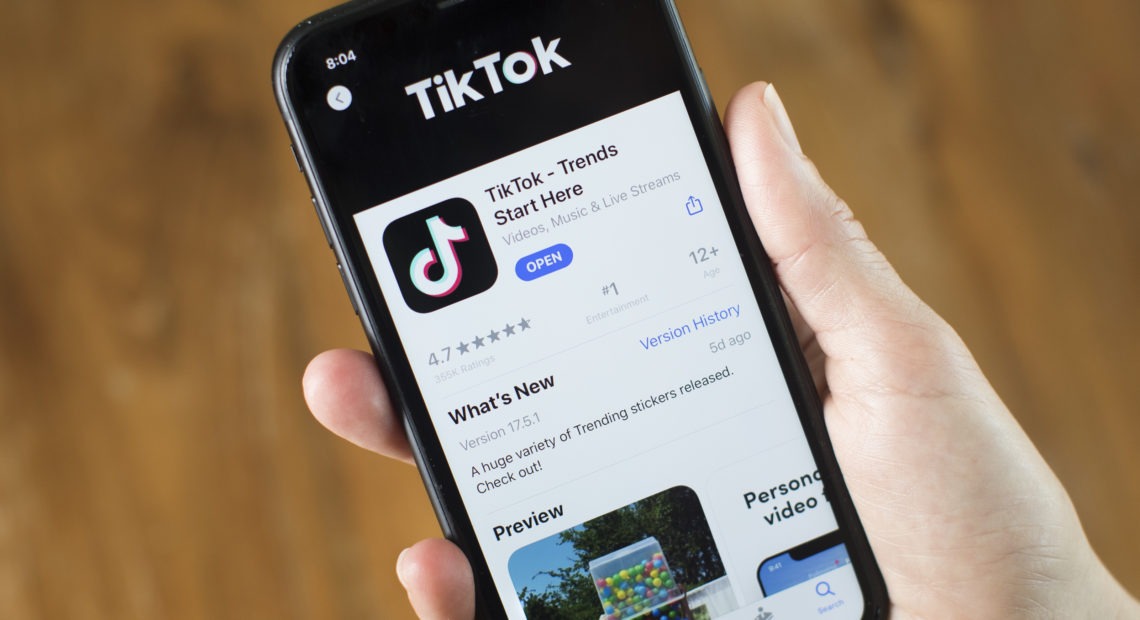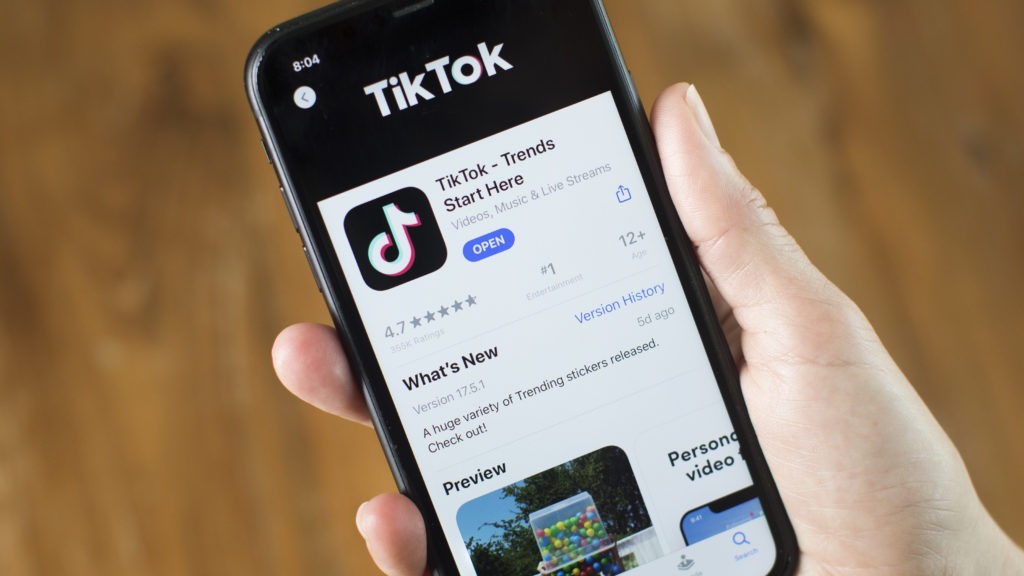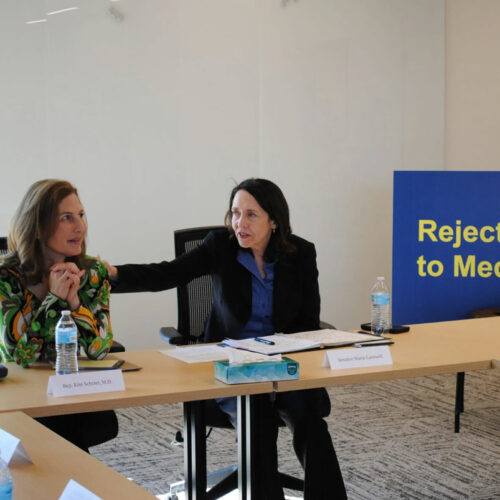
Federal Judge Blocks President Trumps Administration’s Attempt To Ban TikTok And WeChat
A federal judge has blocked President Trump’s executive order that would have effectively shut down popular Chinese app WeChat, ruling that the action represents a free speech violation.
WeChat, used by 1.2 billion users worldwide and 19 million people in the U.S., was set to stop operating in the U.S. on midnight Sunday following Trump’s order invoking a national emergency and targeting the app on national security grounds.
But U.S. Magistrate Judge Laurel Beeler in Northern California issued a preliminary injunction Sunday morning siding with users of WeChat, who claimed in a lawsuit that Trump’s action curbed their First Amendment rights.
“Certainly the government’s overarching national-security interest is significant,” Beeler wrote, but the Trump administration “has put in scant evidence that its effective ban of WeChat for all U.S. users addresses those concerns,” the judge wrote.
The reprieve for WeChat comes a day after TikTok, an app owned by ByteDance, a company based in China, was rescued in a last-minute deal approved by Trump in which software company Oracle will serve as a custodian of U.S. user data, with a major investment from Walmart.
While TikTok is primarily used for creating and sharing short, goofy videos among mostly teens and 20-somethings, WeChat is like several different apps combined into one. It is communications and social media platform, and for some the primary way of staying in touch with family in China. Users on WeChat also use the app to purchase flights, read the news and transfer money.
“WeChat is effectively the only means of communication for many in the community, not only because China bans other apps, but also because Chinese speakers with limited English proficiency have no options other than WeChat,” Beeler wrote in her order, comparing WeChat to “a virtual public square for the Chinese-speaking and Chinese-American community.”
The lawsuit was filed by the U.S. WeChat Users Alliance, a nonprofit representing the interests of U.S. WeChat users that was established to challenge Trump’s order.
In the suit, lawyers pointed to the president’s numerous anti-China statements made before he issued the order against WeChat, including Trump’s use of the phrase “the China virus,” and “Kung-Flu” to describe the coronavirus.
Thomas Burke, a lawyer representing the WeChat users, told NPR he is grateful the order was temporarily stopped.
“Never before has a President sought to ban an entire social media platform – used by a minority community to communicate – with such discriminatory animus and haste,” Burke said.
WeChat is owned by Chinese tech company TenCent. The Trump administration insists that the app can be used by the Chinese government to harvest the data of Americans. White House officials also says WeChat censors content that the Chinese Communist Party disagrees with, arguing that the app can be used for disinformation campaigns.
In her order, Beller said while there is considerable evidence that some Chinese technologies do pose a legitimate national security threat to the United States, “the specific evidence about WeChat is modest,” the judge wrote.
The Trump administration has not said whether it intends to appeal the order.
Previous Story, Sept. 19, 2020
The Trump administration is banning Americans from downloading popular video-sharing app TikTok and limiting the use of WeChat because of national security concerns, the Commerce Department announced on Friday.
As of midnight on Sunday, TikTok will also not be able to receive system updates, which could affect its functionality, including slowing down the app, but the app’s current version will still work for American users. Over time, however, TikTok may stop working altogether.
Talks are still underway among parties including software company Oracle and Walmart to come up with a plan to rescue TikTok, which has more than 100 million users in the U.S. and 700 million globally.
Parties have until Nov. 12 to finalize a deal or the administration will fully ban TikTok, White House officials said.

As of Sunday, Sept. 20, mobile app stores in the U.S. won’t be allowed to distribute or maintain the WeChat or TikTok apps, the Commerce Department says. CREDIT: Brent Lewin/Bloomberg via Getty Images
The federal action will also limit the use of WeChat for transferring money or conducting payments inside the U.S
Commerce Secretary Wilbur Ross said in a statement that the restrictions on TikTok — which arose from President Trump’s executive order issued last month targeting the app — will take effect on Sunday.
“Today’s actions prove once again that President Trump will do everything in his power to guarantee our national security and protect Americans from the threats of the Chinese Communist Party,” Ross said in a statement.
TikTok, in a statement, called the Trump administration’s action “unjust” and vowed to keep to fighting the order in federal court.
“In our proposal to the US Administration, we’ve already committed to unprecedented levels of additional transparency and accountability well beyond what other apps are willing to do, including third-party audits, verification of code security, and US government oversight of US data security,” a TikTok spokesperson said. “Further, an American technology provider would be responsible for maintaining and operating the TikTok network in the US, which would include all services and data serving US consumers.”
Kirsten Martin, professor of technology ethics at the University of Notre Dame, said the Trump administration’s enforcement action will not do much to address any national security concerns White House officials have with the Beijing-owned TikTok.
“TikTok was never a national security risk. In many ways, an app like TikTok is better than most apps in that they don’t sell user data to third parties. That actually may end when Oracle gets involved given their work in digital marketing,” Martin said.
Also starting Sunday, it will become illegal to provide Internet hosting and other network services for WeChat.
WeChat users launched a legal challenge to block the order before it took effect, but that effort is now moot, according to the federal judge in the case, U.S. District Judge Laurel Beeler.
Beeler, however, said she would hold an emergency hearing on Friday on the future of the suit.
TikTok is owned by ByteDance. WeChat, a messaging and social media app that also lets users conduct payments, is owned by Tencent.
Under TikTok’s terms of service, user data can be shared with ByteDance. That has made officials in Washington worry about the possibility of China gaining access to U.S. user data. The amount of data TikTok collects on Americans is on par with what other apps collect, including ones owned by Facebook and Google.
Alex Stamos, Facebook’s former chief security officer, told NPR in an interview that Trump deciding what is allowed to be on the phones of Americans is reminiscent of actions undertaken by China’s authoritarian government, which has a firm grip on what information its citizens can access online.
“It’s a very dangerous precedent to send around the world: that the United States is acting like the Chinese do. In a democracy, we should have rules that are fairly applied and adjudicated by the judicial branch, not just by fiat by the president,” Stamos said. “These are speech platforms. So there’s a lot of thorny issues here.”
In the meantime, discussions among American investors over the future of TikTok are continuing behind closed doors.
Trump has insisted that ByteDance must lose its majority stake in TikTok, triggering a flurry of activity from U.S. companies interested in acquiring or partnering with the video-sharing service.
Oracle beat out Microsoft as the top U.S. suitor. The current proposal on the table from Oracle would give it a majority stake in TikTok, but ByteDance would retain a significant minority stake and also maintain a strong position on the company’s board. It is not clear whether Trump will support the deal.
Oracle has ties to Trump. Larry Ellison, a top Oracle executive, is one of the few tech leaders in Silicon Valley who support the president. He held a fundraiser for Trump in February.
TikTok’s 1,500 employees were worried Trump clamping down on the app would deprive them of their wages, but the administration recently clarified in a court filing that TikTok workers, and anyone working for a subsidiary of ByteDance, will not be affected by the August executive order.
TikTok is challenging the order in federal court, arguing it deprives the company of due process.
Vanessa Pappas, TikTok’s interim global chief, said Trump’s ban will be bad for the tech industry.
“We invite Facebook and Instagram to publicly join our challenge and support our litigation,” Pappas wrote on Twitter. “This is a moment to put aside our competition and focus on core principles like freedom of expression and due process of law.”















